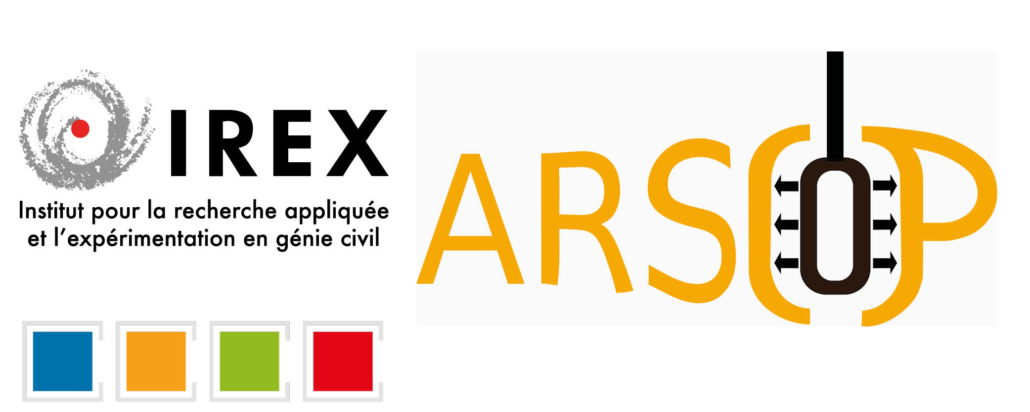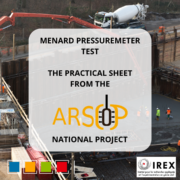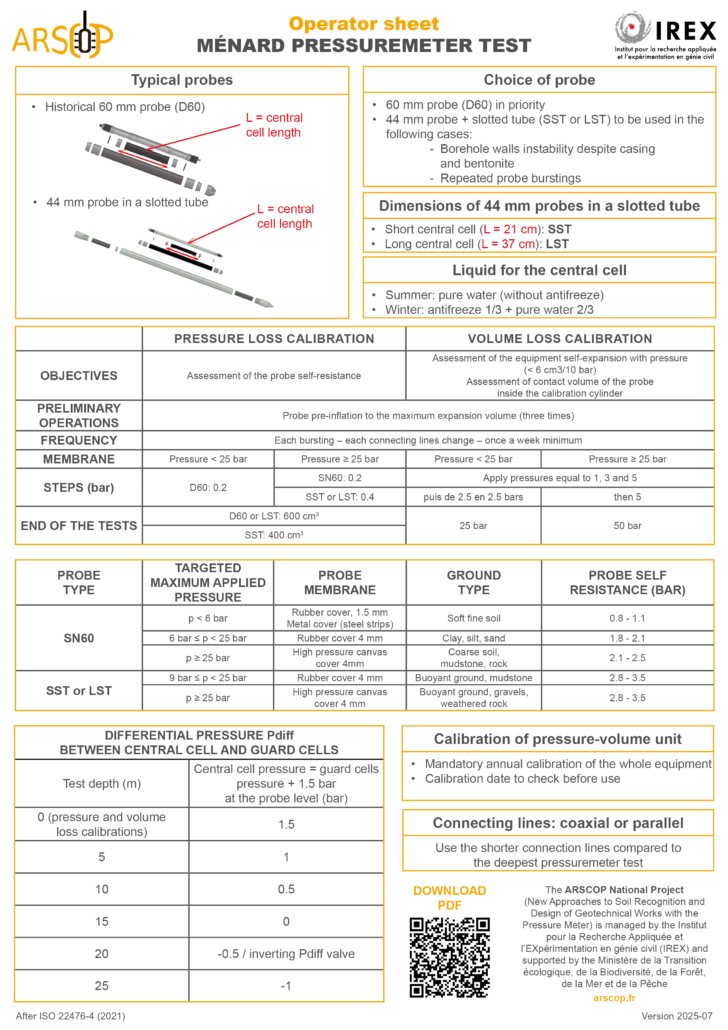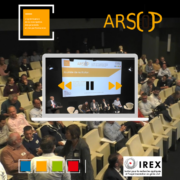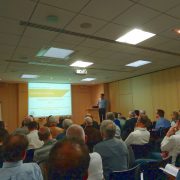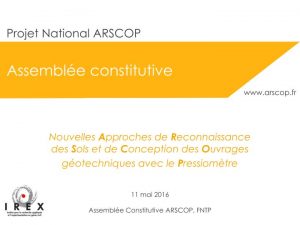A practical resource to improve the quality of pressuremeter tests
The ARSCOP National Project provides a practical sheet aimed at field operators and, more broadly, all geotechnical survey stakeholders. This guide focuses on the MENARD pressuremeter test, following the (EN) ISO 22476-4 standard, and presents key best practices to ensure reliable and usable measurements.
It is primarily intended for drillers and investigation technicians, but will also benefit engineers, design offices, construction companies, project owners, or control offices wishing to ensure the quality of their geotechnical surveys.
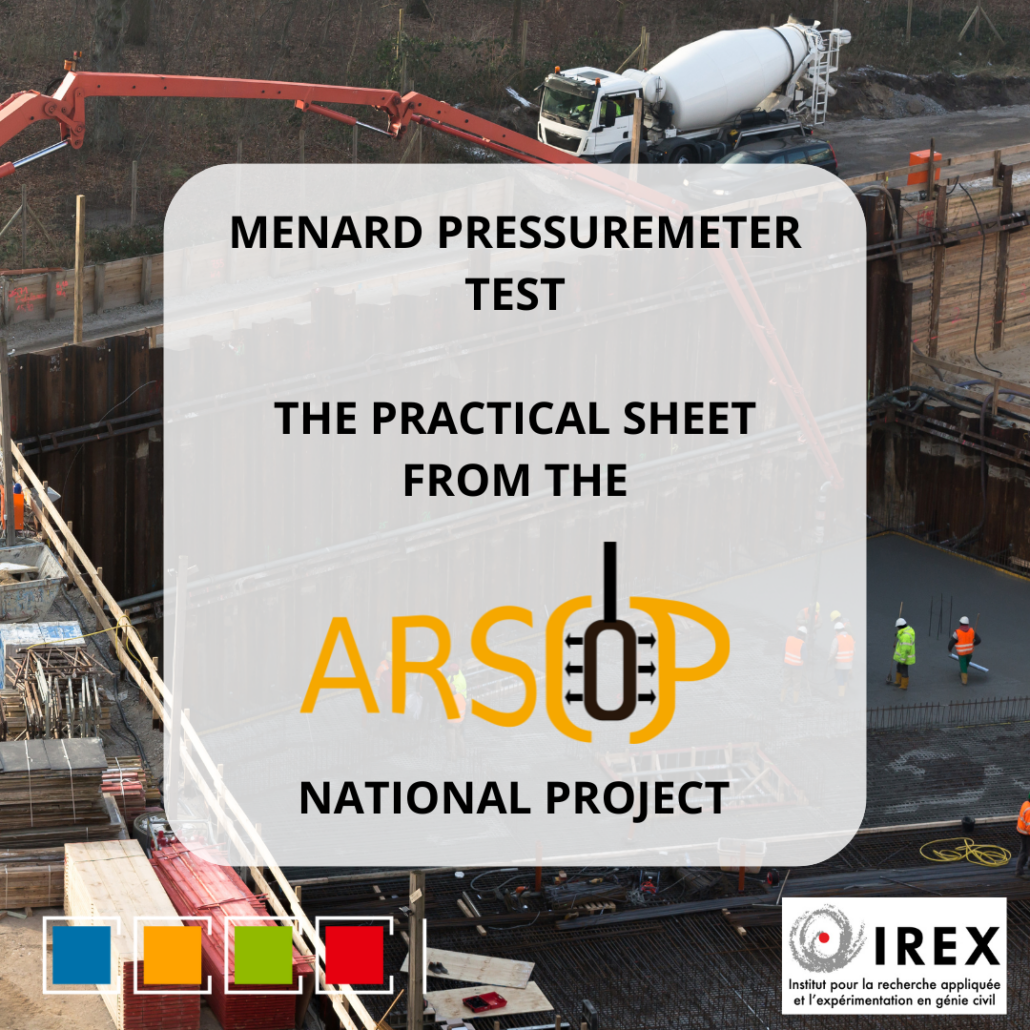
Why this Practical Sheet?
During the public presentation of the ARSCOP National Project in September 2024, industry professionals expressed a clear need: to have an operational, clear, and easily applicable document for use in the field. This led the ARSCOP Steering Committee to create this concise sheet to:
- Reiterate the fundamentals of proper MENARD test execution;
- Share recommendations from ARSCOP’s feedback;
- Emphasize the key role of the driller, a crucial link in obtaining quality data.
The MENARD Pressuremeter Test: A Core Tool in French Geotechnics
The pressuremeter test is a cornerstone of soil investigation in France. It is used to characterize mechanical properties of soils (pressuremeter modulus, limit pressure, creep pressure) and support design calculations. It also provides valuable insights into the initial stress state of the ground.
Developed by Louis Ménard in the 1950s, this test has allowed France to acquire a unique geotechnical design tool, applied in:
- Shallow and deep foundations;
- Retaining walls;
- Soil reinforcement, etc.
The Role of the ARSCOP National Project
ARSCOP (New Approaches to Soil Investigation and Geotechnical Structure Design Using the Pressuremeter) is a collaborative research project labeled “National Project” by the Ministry of Ecological Transition in 2016. Managed by IREX, it brings together major players in the field: clients, engineers, drilling companies, manufacturers, researchers…
Main objectives of ARSCOP:
- Improve soil investigation and geotechnical design using the pressuremeter test;
- Upgrade test equipment for higher performance and usability.
- Develop suitable behaviour laws for numerical modelling;
- Consolidate best practices for test execution and interpretation
Why Execution Quality Matters
ARSCOP’s research confirmed that the quality of pressuremeter test results depends directly on drilling quality and probe placement techniques. This sheet thus aims to:
- Highlight the operator’s role as a data reliability guarantor;
- Provide a reference tool for field teams to secure their practices;
Improve the usability of pressuremeter tests in geotechnical studies.
A Sheet to Be Widely Shared
The ARSCOP National Project encourages the entire geotechnical community to download, use, and share this practical guide within their teams and networks. Improving test quality collectively will enhance calculation models, geotechnical risk control, and project performance
Don’t hesitate to pass it on to
your worksites, your training courses
or your professional networks.
The ARSCOP National Project was approved in 2016 by the Ministry of Ecological Transition, highlighting its strategic importance for civil engineering and public works. It reflects the State’s commitment to support technical innovation in infrastructure and sustainable construction.
The project is managed by IREX (Institute for Applied Research and Experimentation in Civil Engineering), which has supported collaborative research projects since 1989. By coordinating research actions and ensuring innovation transfer to professionals, IREX plays a key role in transforming scientific knowledge into technical references and best practice guides.
